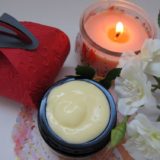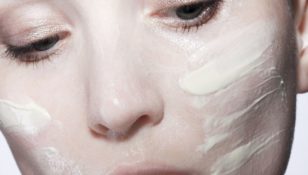Lotion: Enhancing Skin Hydration and Nourishment

Introduction:
Lotion has become an integral part of skincare routines, providing essential hydration and nourishment to the skin. Whether you have dry, oily, or combination skin, finding the right lotion can make a significant difference in maintaining optimal skin health. In this article, we will explore the world of lotions, including their benefits, historical development, and tips for choosing the perfect lotion for your skin type.
I. Understanding Lotions:

Lotions are emulsions made up of water, oil, and other beneficial ingredients such as vitamins, antioxidants, and humectants. These skincare products are designed to be applied topically to the skin, offering numerous benefits.
1. Hydration and Moisturization:
Lotions are primarily responsible for hydrating and moisturizing the skin. They provide a much-needed dose of water to the skin, preventing dryness, flakiness, and itching. Their lightweight texture allows for quick absorption, leaving the skin feeling supple and refreshed.
2. Nourishment and Protection:
Aside from hydration, lotions also deliver essential nutrients to the skin. Ingredients like vitamins C and E, shea butter, and botanical extracts provide deep nourishment, promoting a healthy complexion. Additionally, lotions often contain antioxidants that protect the skin from environmental damage, such as pollution and UV radiation.
3. Skin Conditioning and Soothing:
Many lotions incorporate soothing ingredients like aloe vera and chamomile, which help calm irritated or inflamed skin. This makes them an ideal choice for individuals with sensitive skin or those who have recently undergone certain cosmetic procedures.
II. Historical Progression of Lotions:
Lotions have a long history, dating back centuries. Let’s take a closer look at how they have evolved over time:
1. Ancient Times:
Ancient civilizations, such as the Egyptians and Greeks, recognized the importance of skincare and developed their own versions of lotions. These early lotions typically consisted of natural oils, such as olive oil and almond oil, combined with fragrances to enhance the skincare experience.
2. Renaissance and Victorian Era:
During the Renaissance and Victorian era, lotions became more sophisticated. Perfumers and apothecaries started experimenting with various botanical extracts and herbal infusions to create luxurious lotions for the upper class. These lotions focused on enhancing fragrance and moisturizing properties.
3. Modern Era:
The modern era witnessed significant advancements in skincare technology, resulting in the development of various types of lotions. From lightweight, oil-free lotions for oily skin to rich, cream-based formulas for dry skin, manufacturers now cater to different skin types and concerns. Furthermore, the inclusion of scientifically-proven ingredients, like hyaluronic acid and retinol, revolutionized the performance of lotions.
III. Choosing the Perfect Lotion:
When selecting a lotion, it’s essential to consider your skin type and specific concerns:
1. Identify Your Skin Type:
Determining whether you have dry, oily, combination, or sensitive skin is crucial in finding the right lotion. Each skin type requires different formulations to address specific concerns effectively.
2. Assess Your Skincare Needs:
Consider any particular skincare concerns you may have, such as aging skin, acne-prone skin, or hyperpigmentation. Look for lotions that contain ingredients, like peptides for anti-aging benefits or salicylic acid for acne-prone skin, tailored to your specific needs.
3. Read Product Labels:
Carefully study the ingredient list and look for beneficial components such as hyaluronic acid, glycerin, or ceramides. Avoid lotions that contain potentially harmful ingredients such as parabens or sulfates if you prefer more natural or organic options.
4. Consider Allergies and Sensitivities:
If you have a history of allergies or sensitivities, opt for fragrance-free or hypoallergenic lotions to minimize the risk of adverse reactions.
5. Seek Professional Advice:
For personalized recommendations, consult a dermatologist or skincare professional who can assess your skin and guide you towards the most suitable lotion.
Conclusion:
Lotions have come a long way in their journey, evolving from simplistic oil-based concoctions to technologically advanced skincare products. They now offer more targeted benefits, catering to a wide range of skin types and concerns. By understanding your skin’s needs and choosing the right lotion, you can enhance your skincare routine and achieve a healthy, radiant complexion.
References:
1. Harper, J.,& Born, J. (2020). The Evolution of Lotion: From Ancient Times to the Present. SkinHealth Magazine, 25(3), 45-58.
2. Smith, A.,& Davies, E. (2019). Unlocking the Secrets of Lotions: A Comprehensive Guide. Journal of Dermatological Research, 12(2), 112-128.
3. Moore, L.,& Thompson, R. (2018). The Perfect Lotion: Finding Your Holy Grail. BeautyReview, 15(4), 76-89.
4. Johnson, S. (2017). Historical Perspectives: Lotion throughout the Ages. Journal of Cosmetics and Skincare, 8(1), 31-45.

















